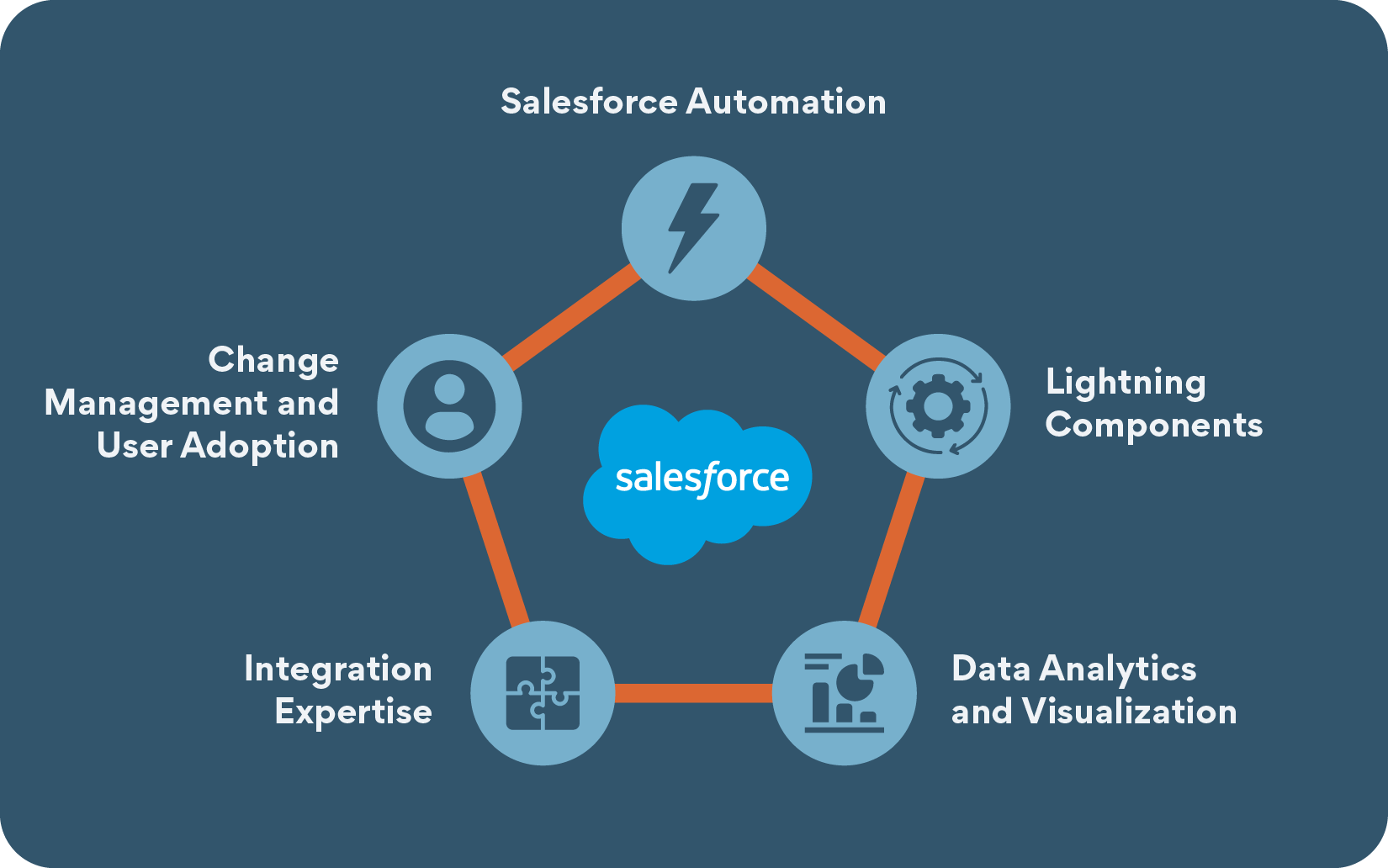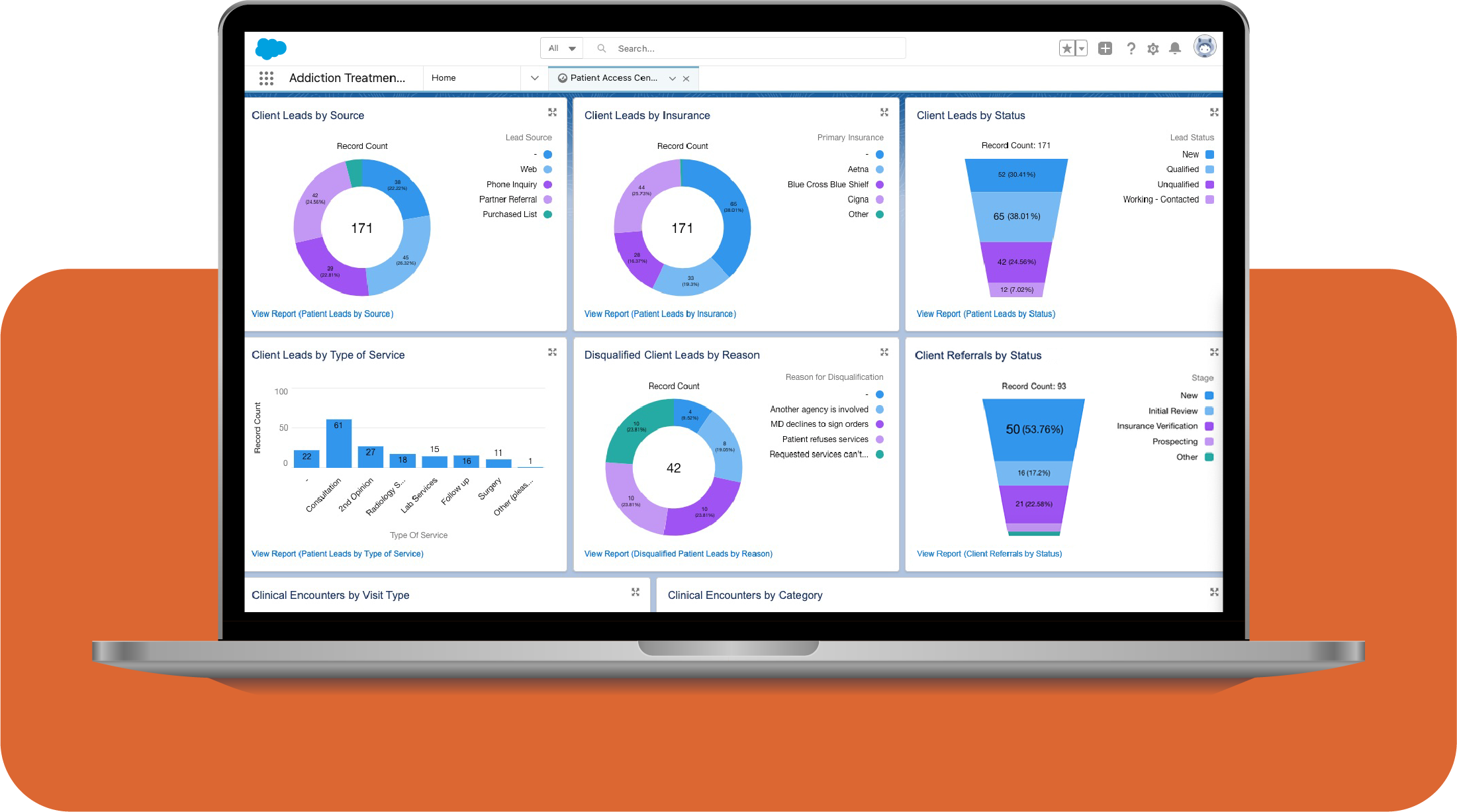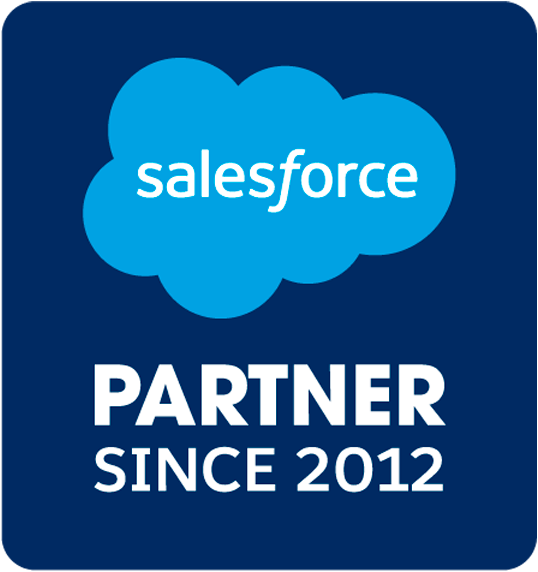
Skill #1: Salesforce Automation
Automation is part of the essential Salesforce admin team skills to optimize workflows, minimize manual tasks, and ensure data accuracy. Proficiency in Flow Builder is vital for effective automation.Beyond Simple Workflows & Process Builder: Embrace Flow Builder
While basic workflows are powerful, Flow Builder offers greater flexibility and control. This allows you to automate complex processes, including multi-stage approvals, data validation, and custom logic.Real-world Business Example:
If you want to optimize your sales process, your admin can use Flow Builder to automate the lead qualification process, ensuring that leads are promptly assigned to the right sales representatives based on predefined criteria. By automating this process, businesses can improve response times to leads and ultimately increase the likelihood of converting leads into customers. This not only optimizes the use of sales resources but also leads to a better overall customer experience.Skill #2: Lightning Components
Lightning Components are the building blocks that make your Salesforce user’s experience seamless, intuitive, and lightning-fast. Having a Salesforce admin team that understands how to utilize Lightning Components is key to unlocking the full potential of your Salesforce investment.Real-World Business Example:
Business Challenge: A manufacturing company faces challenges in efficiently managing the sales process, which involves complex product configurations, varied pricing structures, and the need for a seamless customer interaction experience.Solutions Using Lighting Components
- Custom Product Configurator: Lightning Components allows the Salesforce admin team to create a custom product configurator. Sales representatives can now easily guide customers through the product configuration process, dynamically adjusting options, and providing instant pricing updates.
- Interactive Dashboards for Sales Analytics: Leveraging Lightning Components, the admin team creates interactive dashboards with dynamic charts and graphs. Sales managers can now visually analyze sales performance, track order trends, and identify top-performing products or regions.
- Unified Customer View: Lightning Components facilitate the creation of a unified customer view by integrating data from various sources, including sales, support, and marketing. This consolidated information is presented in a user-friendly interface for sales reps. Sales representatives now have a comprehensive understanding of each customer, including past interactions, support tickets, and recent purchases.
- Mobile-Optimized Sales Tools: Using Lightning Components, the admin team develops mobile-optimized tools for sales representatives. Whether they're on-site with a client or working remotely, sales reps can access crucial information, update records, and generate quotes from their mobile devices.
- Automated Follow-Up Processes: Lightning Components enable the automation of follow-up processes. For example, after a sale is completed, an automated Lightning Component-driven workflow triggers follow-up emails, satisfaction surveys, and prompts for product feedback.
Skill #3: Data Analytics and Visualization
Admins need to harness the power of data by mastering tools like Salesforce's Reports and Dashboards. This skill is crucial for extracting actionable insights and presenting data in a compelling visual format.
Real-world Business Example:
If you seek a way to enable your sales managers to have access to critical sales data, a dynamic Salesforce dashboard is what you need. An admin with these skillsets can provide sales managers with real-time visibility into key performance metrics, empowering them to make data-driven decisions. Additionally, dynamic dashboards allow for personalized views, ensuring that each user sees only the data they have access to, thus maintaining data security and relevance to their role.Skill #4: Integration Expertise
As your businesses grows, so does the need for seamless connectivity between various systems and applications. Therefore, your Admin teams must have knowledge and experience in integrating Salesforce with other platforms. It is important that they can speak confidently to APIs, web services, and middleware, not only what they’re but when and where they should be applied.Real-World Business Example:
If you need to enable a unified view of customer interactions across sales and customer service channels, an admin with integration expertise can connect Salesforce with an e-commerce platform. of enabling a unified view of customer interactions across sales and support channels. This integration allows for real-time synchronization of customer information, purchase history, and order details, providing sales and customer service representatives with instant access to complete customer profiles. As a result, personalized interactions and efficient issue resolution are facilitated, leading to improved customer experiences and enhanced overall profitability. Additionally, the integration eliminates data silos, allowing for more accurate reporting and analysis, and facilitates cross-functional collaboration, resulting in improved efficiency, productivity, and customer satisfaction.Knowing When Integration is Needed:
While a Salesforce admin may not need to be a coding expert, having the ability to recognize when integration is necessary is paramount. Here are key indicators that signal the need for integration:- Data Silos and Inefficiencies: If your team struggles with accessing information scattered across different platforms, it's a clear sign that integration is needed to break down data silos.
- Inconsistent Data Across Systems: Inaccurate or outdated data can lead to misinformed decisions. Recognizing inconsistencies in data across various systems indicates the need for integration.
- Manual Data Entry Overload: If your team spends an excessive amount of time manually entering data into Salesforce from other systems, it's a strong indicator that automation through integration is essential.




